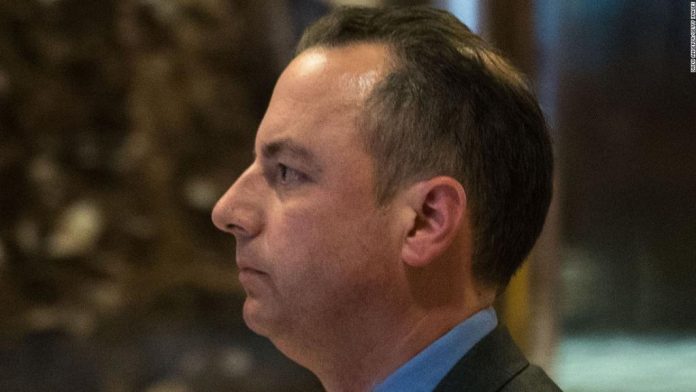
WASHINGTON – Senior administration officials on Sunday defended President Donald Trump’s move to ban the entry of all people from a group of seven predominantly Muslim countries after a weekend of intense backlash over the broadness of the executive order.
Trump’s chief of staff, Reince Priebus, appeared to pull back one of the most controversial elements of the order, which is its impact on green-card holders, who are permanent legal residents of the United States.
“As far as green card holders going forward, it doesn’t affect them,” Priebus said on NBC News’s “Meet the Press.”
He did not elaborate on the change. Department of Homeland Security officials said Saturday that the order would affect green-card holders and other holders of legal visas for the United States. A senior administration official also told reporters in a briefing on Saturday that green-card holders would need a case-by-case waiver to reenter the country.
On Saturday night, several federal judges issued stays, including rulings halting the deportation of green-card holders from the list of seven countries identified in the executive order: Iraq, Iran, Sudan, Somalia, Syria, Libya and Yemen.
Priebus said that green-card holders may be subject to additional scrutiny at the discretion of border officials.
“If you’re traveling back and forth, you’re going to be subjected to additional screening,” Priebus said. “I would suspect that if you’re an American citizen traveling back and forth to Libya, you’re likely to be subjected to additional screening.”
Other aides sought to play down the impact of the order.
Kellyanne Conway, a senior adviser to Trump, noted that the order only affected a small percentage of travelers, and she emphasized that it is temporary.
“I think in terms of the upside being greater protection of our borders, our people, it’s a small price to pay,” Conway said on “Fox News Sunday.” “If there is no further threat, if they are not dangerous to the country, they can expect to be released in due course.”
“This whole idea that they’re being separated and ripped from their family … it’s temporary,” Conway added.
Citing several terrorist attacks, including attacks in Boston, Orlando and San Bernardino, California, Conway said that the executive order is an effort to prevent similar tragedies from happening in the future.
“These are people who traveled abroad, were radicalized, were trained, and then came back and did their bloodletting, their massacre, here on American soil,” Conway said.
But none of the perpetrators of those attacks would have been stopped by the current ban. The Boston Marathon bombers were from Kyrgyzstan. The Orlando shooter, a U.S. citizen, had traveled to Saudi Arabia and was of Afghan heritage. Neither country is covered by the Trump administration’s ban. And one of the two San Bernardino shooters was a U.S. citizen, while the other was from Pakistan.
Both Priebus and Conway suggested that the ban could be expanded to include additional countries.
White House spokesman Sean Spicer said Sunday that the controversial ban is a 90-day pause to allow the Trump administration to establish enhanced vetting restrictions. He said the additional restrictions will apply to a very limited number of people and that people from 46 countries with Muslim populations will be unaffected.
“We’re going to make sure that we don’t let someone slip through the cracks,” Spicer said on ABC’s “This Week.”
He dismissed questions about whether the order could be humiliating to people who are attempting to travel to the United States as the ban is being implemented.
“I know in some cases there is going to be an inconvenience,” he said.
Spicer went on to say that it is more important to consider the people who may become victims of terrorism before acknowledging that none of the terrorist attacks in the United States have been committed by people from the seven countries listed in the ban.
“What do we say to the family that loses some one to a terrorist?” Spicer said. “Granted, none of those are on this list.”
(c) 2017, The Washington Post · Abby Phillip, Kelsey Snell

